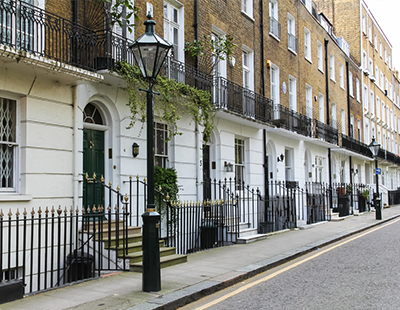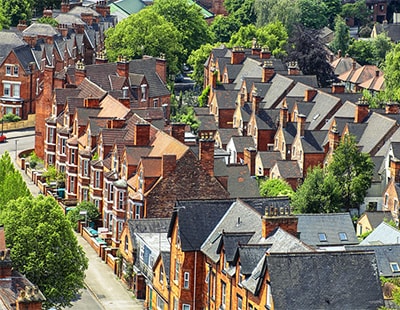Knight Frank says speculation about the relationship between the macro-economy and the housing market has moved from talk of “when will inflation fall” to “when is the election?”
Influential London-focused buying agent and property commentator Jo Eccles has taken things further, actively saying that the election will cause “some disruption” to the 2024 market, although tempering this by saying that Labour’s move from Corbynism to centrism has taken the worry out of the eventual result.
Above the parapet
So aside from leading to a few months of torpor as some sellers sit on their hands ahead of the poll, what effect will an election have - if not before the vote, then afterwards.
The gut instinct of much of the agency industry has historically been to fear a Labour win and hope for a Conservative one.
This has largely been founded on fear of high taxation, although the successive Conservative governments of the past 13 years have transformed that issue.
Thanks to increased stamp duty and its various surcharges, multiple tax changes damaging the private rental sector, worsening Capital Gains Tax burdens and the stealth tax that is Inheritance Tax … well, it would be difficult to say Labour poses a greater fiscal threat.
Indeed, Eccles again has put her head above the parapet by telling her investor clients: “This time the main political parties are more centrally aligned – particularly after Rachel Reeves’ assurances that Labour’s Mansion tax has been scrapped. Whatever the outcome, buyers aren’t expecting major property-related policy changes in either direction.”
So what does history tell us - is one party more, or less, of a threat?
Earlier this year a report by another buying agency - Middleton Advisors, using research by former Savills guru Yolande Barnes - looked at how the housing market has moved in relation to General Election results over the past half a century.
The analysis shows that Labour prime minister Tony Blair oversaw the period of greatest growth in the housing market, with prices increasing by nine per cent per year on average during his premiership. Between June 2001 and May 2005, when Blair was prime minister, house prices increased by almost £48 a day.
Under his predecessor John Major’s Conservative government, which started during a global recession in 1990, house prices increased by just £3 a day.
Knight Frank in 2015 - marking the death of Margaret Thatcher - conducted its own research, finding that UK property prices rose by 187 per cent during her three terms as Prime Minister.
Thatcher’s tenure was undoubtedly the most radical of post-war administrations when it comes to housing policy - she introduced Right To Buy, liberalised Buy To Let, saw social housing slip to the third most popular tenure, and relentlessly promoted home ownership.
Yet in terms of a percentage change in house prices Thatcher’s 11 year period in charge - although overseeing big capital appreciation - still lags behind Tony Blair’s 10 years in power between 1997 and 2007, when house prices rose 211.3 per cent.
That house prices appear to move irrespective of the party in power is backed up by the most academic research on the subject in recent times. This is a paper by academics Bismarck Aha, David Higgins and Timothy Lee published last year in the International Journal of Housing Markets and Analysis.
Decisive leadership
It’s a densely argued thesis but the summary is worth quoting in full: “The paper investigates whether house prices behave differently before and after elections and under different political regimes. To examine this relationship, the study analysed quarterly UK national house price data since 1960, along with data on the results of UK parliamentary elections during the same period.
“Over this period, real annual UK house prices increased by an average of 2.84 per cent. While there is no evidence that house prices in the UK performed significantly differently under different political parties, we observed that house prices performed much better in the last year before an election, compared to the first year after an election.”
So although the available research suggests there is little scientific evidence to ‘prove’ one party is better or worse for the housing market, we can at least extract two strands.
Firstly, while there is little to link market movements to one party or the other, it does appear that the market responds well to decisive leadership - the Thatcher and Blair effect, and the way that may inspire greater economic confidence amongst the wider population.
And secondly, if the academics are right, there’s a clear if temporary boost for the market in the year before an election.
Both of those provide food for through as we enter 2024 and the final 12 months (at most) before the next poll.






/SunakvsTruss02_400x310.png)


/Rishi%20Sunak%2003_400x310.png)















Join the conversation
Jump to latest comment and add your reply
Whatever the outcome of the GE, I can't see the incoming government solving the fundamental problem of the UK's housing market: shortage of supply - both to accommodate the ever growing population (and the changing demographic pattern within it) and to replace the decrepit state of much of the housing stock that currently exists. Therefore, despite my rather pessimistic short-term view (rooted in the reality of the current downward phase of the housing cycle), I'm highly confident that the inexorable upward trajectory of house prices will resume in the second half of the decade (unless a catastrophic global event occurs - financial or geo-political).
If a Labour government takes office, as forecast by the polls, I think the biggest impact will be upon the private rented sector. Any additional regulatory pressures are likely to encourage even more private sector landlords to sell up. This will simply add to the problems that already exist: rising rents, lengthy social housing waiting lists, the number of families in B&B accommodation and increasing homelessness - unless of course a sufficient level social housing can rapidly be built to prevent such an outcome. I wouldn't be prepared to bet the farm on this!
Please login to comment